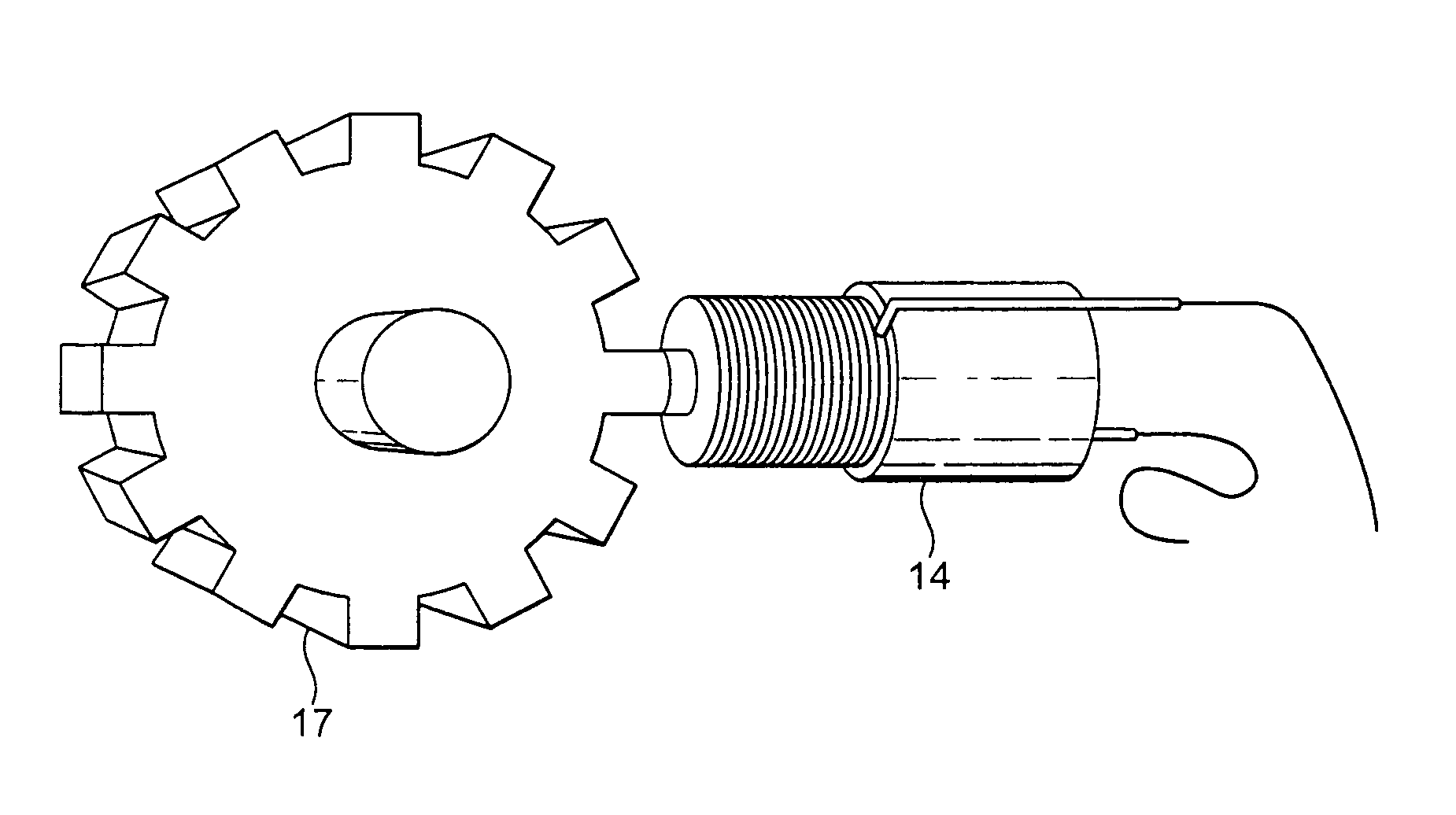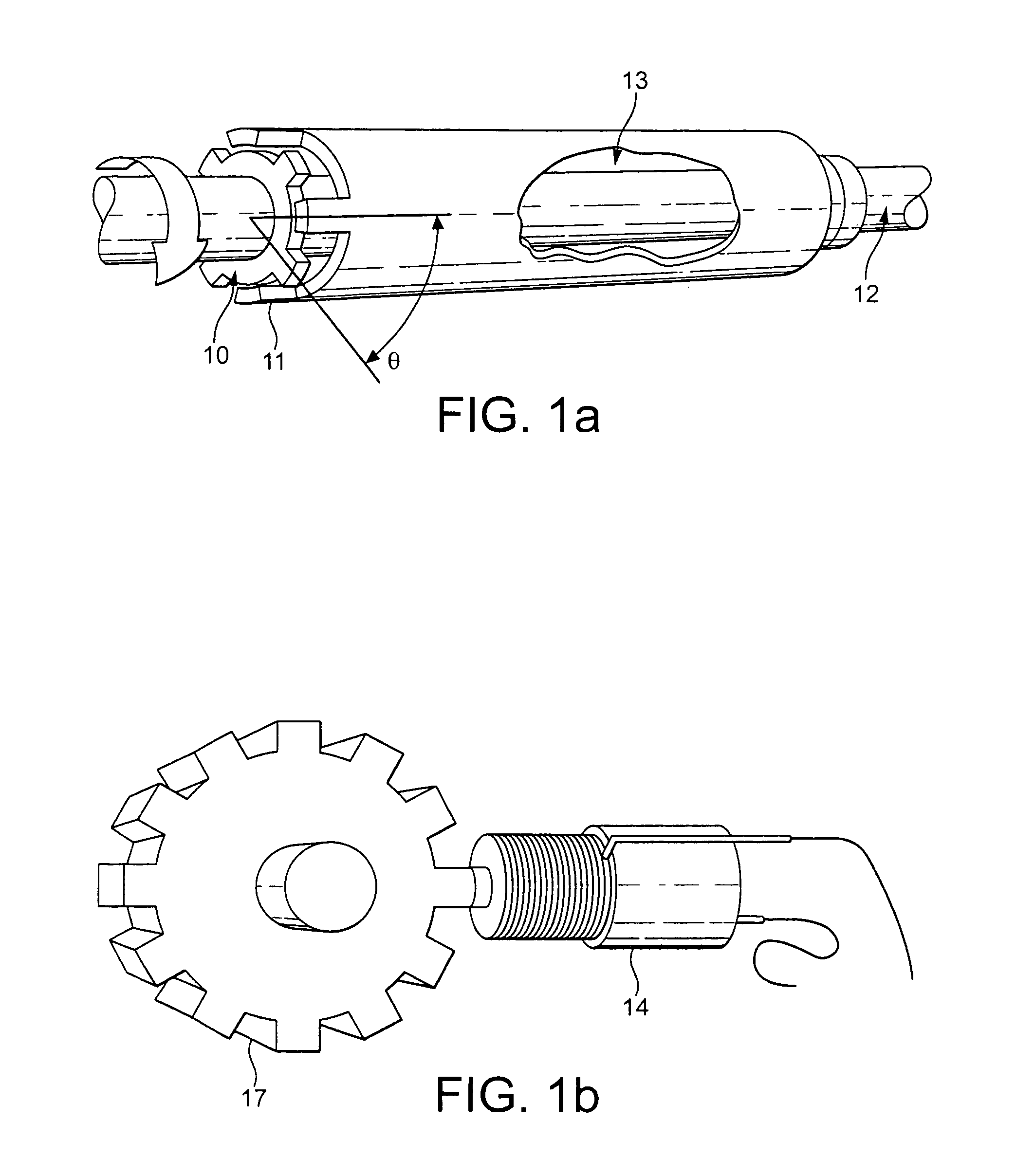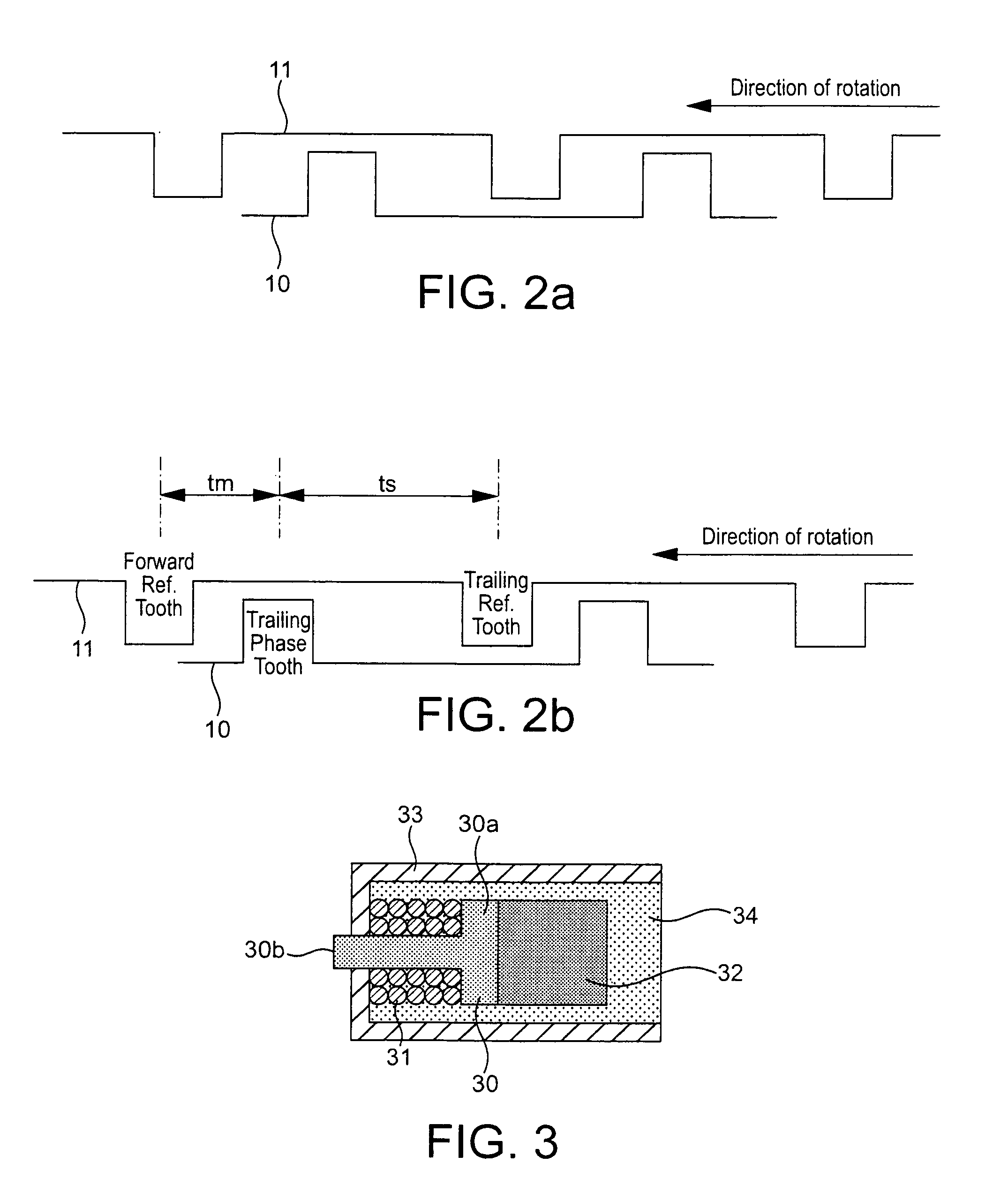Speed or torque probe for gas turbine engines
a technology of torque probe and gas turbine engine, which is applied in the direction of speed/acceleration/shock instrument details, converting sensor output, instruments, etc., can solve the problems of additional modulations or microphonies, measurement system will not function properly, and noise in the output of variable reluctance sensors, so as to reduce minimise the transfer of strain, and reduce the effect of strain in the pole piece as a result of external vibration
- Summary
- Abstract
- Description
- Claims
- Application Information
AI Technical Summary
Benefits of technology
Problems solved by technology
Method used
Image
Examples
Embodiment Construction
[0054]The basic arrangement for a variable reluctance sensor for detecting speed or torque in a gas turbine engine or gear box connected to a gas turbine engine has been described previously with reference to FIGS. 1 to 3. The problem of unwanted microphony in the output signal from such variable reluctance sensors, resulting from strain in the magnetic pole piece 30, has also been described.
[0055]FIG. 6 illustrates a variable reluctance sensor as shown in FIG. 3, but illustrating the direction of the strain in the pole piece 30, which affects the nature of the output signal from conductive wire 31. The pole piece is formed from a soft magnetic material, is roughly T-shaped in cross-section and has a longitudinally extending shaft around which the conductive wire is wound and a rear head, against which the permanent magnet 32 is positioned. Current induced in the wire 31 as result of changes in the reluctance of the circuit formed by the magnetic pole piece, the phonic wheel, and ai...
PUM
| Property | Measurement | Unit |
|---|---|---|
| speed | aaaaa | aaaaa |
| torque | aaaaa | aaaaa |
| conductive | aaaaa | aaaaa |
Abstract
Description
Claims
Application Information
 Login to View More
Login to View More - R&D
- Intellectual Property
- Life Sciences
- Materials
- Tech Scout
- Unparalleled Data Quality
- Higher Quality Content
- 60% Fewer Hallucinations
Browse by: Latest US Patents, China's latest patents, Technical Efficacy Thesaurus, Application Domain, Technology Topic, Popular Technical Reports.
© 2025 PatSnap. All rights reserved.Legal|Privacy policy|Modern Slavery Act Transparency Statement|Sitemap|About US| Contact US: help@patsnap.com



